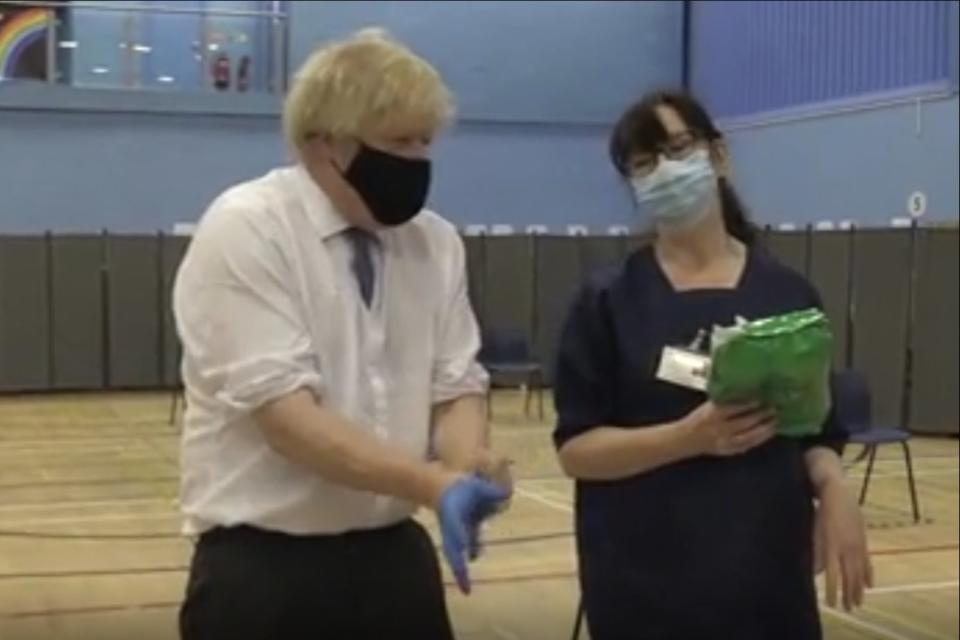Boris Johnson compares himself to OJ Simpson as he struggles to put on glove

Boris Johnson raised eyebrows by declaring “I’m OJ Simpson” as he struggled to pull on a pair of surgical gloves on a visit to a mass vaccination centre.
The Prime Minister was filmed trying to put on the gloves at the centre in Cwmbran, South Wales, as a nurse laughed alongside him and offered to help.
“No, I got it, I got it, Ah,” he replied, before flexing the plastic over his wrist with a satisfying snap.
Relieved to have squeezed his hand inside in front of the waiting press pack, he said: “I’m OJ Simpson” loud enough to be picked up by microphones.
The unfazed nurse politely replied: “Absolutely.”
The Prime Minister was apparently referring to Simpson’s 1995 murder trial, when the former NFL star was asked to try on a blood soaked black leather glove thought to have been used in the killings of his ex-wife, Nicole Brown Simpson, and her friend, Ronald Goldman.
His lawyer, Johnnie Cochran, focused on the glove as one of the key pieces of evidence. After Simpson struggled to put them on in the courtroom, Mr Cochran told the jury: “If it doesn’t fit, you must acquit.”
Simpson was cleared of murder following the trial, but two years later a civil court jury found him liable for the deaths of his ex-wife and Mr Goldman, and ordered he pay their families $33.5 million.
In 2016, the documentary “O.J.: Made in America” claimed that Simpson’s team had instructed him to stop taking hand medication so it would swell and not fit the glove.
Former Los Angeles County District Attorney Gil Garcetti, who led the prosecutor’s office during the trial, told ABC’s Good Morning America: “What we didn’t know until I saw it on this film was that O.J. Simpson was taking arthritic medication for his hands and he was told, ‘If you stop taking this arthritic medication, your hands will swell. Your joints will stiffen,’” Garcetti said. “My God.”
Read More
UK coronavirus LIVE: Covid human challenge trials to begin as data suggests vaccines cut death toll

 Yahoo News
Yahoo News 